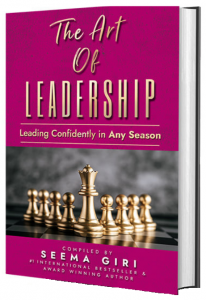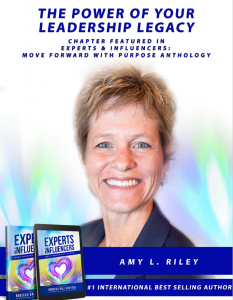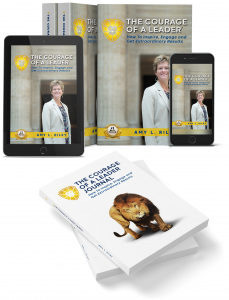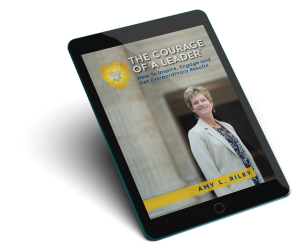How can you be a leader who truly makes a difference with your team?
It takes intentionality and generosity, and Judy Hoberman tells us how in this episode:
The Generous Leader: How to Engage, Empower and Build More Success in Your Team.
Judy is an award-winning international speaker, best-selling author, trainer and leading authority on women in leadership and sales.
You’ll appreciate her thinking and suggestions that you can apply organically.
About the Guest:
Judy Hoberman, President of Judy Hoberman and Associates, is an award-winning international speaker, best-selling author, and leading authority on women in leadership and sales with 30 years of business experience. As a transformational executive coach, she enlightens audiences on how both genders can support each other’s success.
Judy has authored four books, including “Selling in a Skirt” and “Walking on the Glass Floor,” and serves as the Executive Director for the Walking on the Glass Floor Foundation. Recognized for her contributions, she received the Character and Integrity Award and was named a “Woman to Watch” by Thrive Global. Judy hosts the podcast “Selling in a Skirt with Judy Hoberman” and has been featured as “The Gender Expert” on Fox News Radio.
She is dedicated to the mission of helping one woman a day, advocating for the philosophy, “Women Want To Be Treated Equally…Not Identically”®.
About the Host:
Amy L. Riley is an internationally renowned speaker, author and consultant. She has over 2 decades of experience developing leaders at all levels. Her clients include Cisco Systems, Deloitte and Barclays.
As a trusted leadership coach and consultant, Amy has worked with hundreds of leaders one-on-one, and thousands more as part of a group, to fully step into their leadership, create amazing teams and achieve extraordinary results.
Amy’s most popular keynote speeches are:
- The Courage of a Leader: The Power of a Leadership Legacy
- The Courage of a Leader: Create a Competitive Advantage with Sustainable, Results-Producing Cross-System Collaboration
- The Courage of a Leader: Accelerate Trust with Your Team, Customers and Community
- The Courage of a Leader: How to Build a Happy and Successful Hybrid Team
Her new book is a #1 international best-seller and is entitled, The Courage of a Leader: How to Inspire, Engage and Get Extraordinary Results.
https://www.linkedin.com/in/amyshoopriley/
Link mentioned in the podcast
The Inspire Your Team assessment (the courage assessment): https://courageofaleader.com/inspireyourteam/
Thanks for listening!
Thanks so much for listening to The Courage of a Leader podcast! If you got inspired and/or got valuable leadership techniques you can use from this episode and think that others could benefit from listening, please share using the social media buttons on this page.
Do you have questions or feedback about this episode? Leave a comment in the section below!
Subscribe to the podcast
If you would like to get automatic updates of new The Courage of a Leader podcast episodes, you can subscribe to the podcast on Apple Podcasts. You can also subscribe in your favorite podcast app.
Leave us an Apple Podcasts review
Ratings and reviews from our listeners are extremely valuable to us and greatly appreciated. They help our podcast rank higher on Apple Podcasts, which helps us ignite The Courage of a Leader in more leaders! Please take a minute and leave an honest review on Apple Podcasts.
Teaser for next episode
Up next is Practical Secrets to More Energy, Mental Toughness, and Consistent Achievement with Sue Firth, a Business Psychologist, Performance Coach and a leading authority on stress, resilience, and well-being. Sue shares with us practical and specific steps to take to release stress from our weeks and from our bodies.
Transcript
How can you be a leader who truly makes a difference with your team? It takes intentionality and generosity and Judy Hoberman tells us how Judy is an award winning international speaker, Best Selling Author, trainer and leading authority on women in leadership and sales. You'll appreciate her thinking and suggestions that you can apply organically.
Amy Riley:Welcome to the Courage of a Leader podcast. This is where you hear real life stories of top leaders achieving extraordinary results. And you get practical advice and techniques, you can immediately apply for your own success. This is where you will get inspired. And take bold, courageous action. I'm so glad you can join us. I'm your host, Amy Riley. Now, are you ready to step into the full power of your leadership and achieve the results you care about most? Let's ignite the Courage of a Leader.
Amy Riley:Thank you, Judy, for being with me today. I'm excited retail. Judy is a thought leader in both leadership and sales. She's written four books for very well received books. And we have talked many things leadership. And when we discussed what conversation Do we want to have for the Courage of a Leader podcast? Judy, you focused in on how powerful and successful and engaging it is when a leader is truly being generous. So we're going to talk about demonstrating generosity as a leader. What that means why it's important how we do it. So today, we let's start with the what? What do you think about when you think about a leader demonstrating generosity,
Judy Hoberman:there are so many things you can actually start with. But I'm going to just start with it's more about the real generosity is giving without receiving, that's the most important thing that you have to understand just because you're giving somebody something, you cannot expect them to give you something back. But with a leader being generous, I say is being generous with your with their time. Yeah. Because there is nothing more valuable. I don't care if you're just starting out in your position, if you have been there forever, when somebody opens their door for you and gives you some time. There's nothing else like it. And you know, there's so many examples of it. But my favorite example, and this is really something that I would say I would work for this person, anytime. There was a there was a man that was being interviewed, and the CEO was doing the interview, and he had his cell phone upside down. Okay, so there's your first first clue, but for some reason it vibrated. He thought he turned it off, and it vibrated. He didn't touch it. And it vibrated a few times. And the person that was getting interviewed said do you need to get that? It sounds like it could be important. And the CEO said, there's no one more important than you.
Amy Riley:That was it in this conversation with right now. Yeah. And so
Judy Hoberman:for me, that's a really, it's a great example of being generous.
Amy Riley:Yeah, simply people giving them our time, and our attention,
Judy Hoberman:right, and being present being present in that moment.
Amy Riley:Why is that so important? Judy,
Judy Hoberman:when you are a leader, and you are scattered everywhere, or constantly looking everywhere, or looking at your watch, because there's text messages coming in, you are not showing that you are having any kind of interest in whomever you're speaking with, whether it's person or group, it doesn't matter. You're not there. And if you're not present for something as small as a meeting, how are you going to be present for something really big. And I know for me, when somebody gives me all their attention, and we have eye contact, even virtually, you'd have eye contact there. You can't ask for more than that. So being present, being generous with your time is truly one of the biggest qualities I believe a leader can have. Yeah,
Amy Riley:and I know that there's research about engagement by Gallup and other organizations that the thing that employees want most from their leaders is attention, right attention that is showing up and being present and giving them our full attention.
Judy Hoberman:Yeah, and recognize a some recognizing someone who has done something because you know who they are they you know your people because you've given them some time and you've learned about them. I mean, it's it's a it's a big cycle. It really is when you know your people you can be more generous when you know what they want to do. You can you know be Joe interest with your time and your experience and your expertise and your mentorship and all of that. So yeah, yeah,
Amy Riley:I'm seeing that clearly, I started to draw a cycle, right piece of paper over here before you said those words. Because once I know you, and I know that you play tennis, and I know that you're trying to drive cooperation inside of your team, or whatever it is. And I follow up on that, right? How was the tennis match this weekend, right? How the tennis skills building, how's the team collaborating with other teams in the organization, then we can follow up on those conversations. And it gets it gets easier and easier and more organic, to be able to give that interest. And
Judy Hoberman:I know that you've heard what I had to say, because you're following up on it. When I was in financial services, I would tell all of my my agents, when you're with somebody asked if it's okay to take notes. What are they going to say yes or no, no one's ever said no to me. And then I'm, I have to listen to what you're saying. Because I'm taking notes. But I'm not just taking notes. I'm taking notes in your words. I'm not paraphrasing them. So when I say to you, you know, oh, yeah, I play tennis. And I'm going after the Southlake executive, women's forum. I want to be part of that. And I'm right, you know, I'm writing that down. Because that's what you said. And when we come back, and I'm saying, so did you get into himself like for him and you thinking, How did she know that? She do that? Right? Because the best compliment you can give someone is that they really listened to you. What would you say,
Amy Riley:Judy? To the folks that are like, it's about the work, right? It's just about the work, we show up at work to be productive? Like, like, why do we Why do we got to talk about tennis? Like, why do we got to talk about how I'm feeling about the work,
Judy Hoberman:you don't have to, let's just put it out there. You don't have to do that. Sometimes, if you're trying to find some kind of thread that connects the two of you, that makes it easier to have a conversation with, that's why you do it. But if you want to keep it straight for work, you can keep it 100% work, because as a leader, I'm going to say to you tell me how you see yourself, you know, what is it that you truly want to be in this organization? Now, I'll go back to financial services for a moment because this I did this all the time. And I would only get three answers. I would say they would either say I just and I hate when people say Jasper, I just want to be a producer, I don't want to worry about anybody, me. And I would say great, I will show you the journey. Or they'd say I want to go into leadership. And I'd say great, I'll show you the journey. Or they'd say I want your position. And I would giggle first and then I'd say great. Let me show you the journey. But I knew what they wanted. Because I'm writing it down. I want to be a producer and I want to do $7 million, or whatever. So if something didn't work the right way, I would go back to my notes and say, you know, Amy, when we were together, you wanted to go into the Leadership track. And you need to have this in this designation. How are you doing with that? So it's the same thing. It's 100% work? Yeah, 100% work, but it's the same concept. Because I'm giving you my time. You're giving me your time. And together, we're bonding and we're growing a relationship, it's the same thing. Doesn't have to be tennis,
Amy Riley:you're asking what do you want? Right? How can I help you? And what support do you want? How do we get there and offering that? So we could ask that about someone's career, we can say that about the project you just launched together, you can ask that about the task that we just delegated? What would success look like for you with this?
Judy Hoberman:Right? And what do you need? And how can I support you? I mean, that's that's how simple it is. And people make everything so complicated to open lines of communication. That's a big part of generosity as well, to give them the idea. Now, I'm not saying to be available 24/7. You don't have to do that. But you can have you know, if you want to give them a calendar, you can do that. Or you can just say let me know when you're available. Let's see how we can make our calendars cooperate. If they can't, we'll move it along. Yeah,
Amy Riley:let me know what works for you. Yeah, I'll accommodate it if I can, if I can. Yeah, that's Oh, yeah. I love it, Judy. I've got more questions, but let me tell listeners more about you. Okay, Judy Hoberman is President of Judy Hoberman and Associates, a company focused on empowering professional women. She is an Award-winning International Speaker, Best Selling Author, trainer and leading authority on women in leadership and sales. Judy is a TEDx speaker, as well as the author of four books including Selling In A Kkirt and Walking On the Glass Floor. Judy is the Executive Director for the Walking on the Glass Floor Foundation, a board member for Fearless Dallas and on the Advisory Board for Females in Finance as well as Cal Poly Enterprises. Judy is the host of Selling in a Skirt with Julie Hoberman podcast and has been the Gender Expert on Fox News Radio, Judy's mission to help one woman a day by following an important philosophy. Women want to be treated equally, not identically. Thank you for being on the podcast, Judy.
Judy Hoberman:Thank you for having me. I was so excited for this day to happen. Yes,
Amy Riley:yes. Me too. We've been looking forward to it. Now, Judy, I know one of the ways that you are generous as a leader is you are a mentor, support people in those ways? How would you suggest a leader? Think about being generous with others in that way? How do you get that started? Well,
Judy Hoberman:I think for me, I was put in a position where I was the only female I was the only mentor. And so it was naturally, air quotes assumed that I would be the one to do this, which was thrilling to me. I don't know about anybody else. But I thought it was great. And so I would ask people what they needed, just like I'm telling you, I always say, Well, how can I support you? The question I always got back was, how can I find a mentor? And I say, you just ask, but you don't have to say, will you be my mentor? You ask a question. Like, for instance, I would say, Amy, when you do this, you make it sound you make it so simple. Can you show me how to do that. I didn't say help. I didn't say support, I didn't say mentor. So you can there's one of two things you're going to say, of course, or I don't have time, if you don't have time, you're not my mentor, I know that already. But if you do, we might get into a conversation. And you might say to me, you know, I'd love to help you with anything else that you need, or I'd love to help you, you know, show you the ropes or whatever. And that's where a mentor mentee relationship start. That's how most of mine started. However, there are companies now that are doing official mentoring programs. And that's wonderful. What you do find is there's a lot more mentees than mentors. So again, you have to have somebody that is willing to go out into the industry or go out into the community and say, I'm looking for, you know, mentors for women, for men, whoever it is. But being a mentor is one of the most important ways of being generous. You've already been there done that. You already bought the t shirt, you already know what it's like, why why wouldn't you help the next level? The next generation of leaders? Why wouldn't you do that? Yeah, I don't have time. Okay. You don't have to do it every day, you could do it once a month, once a quarter. But even if you gave somebody 20 minutes or 30 minutes of your time, do you know how much they soak in? And by the way? Do you know how much you learn? As the mentor? Yeah, you know, there's, there's a great statistic, it's 65% of all women who have been mentored become mentors. Ah, nice. Okay. And if you've never had a mentor, I never had a mentor. I never had a female mentor ever, ever, ever. I became more. That's the woman I became when I started my company, I became the woman that I wish I would have had. And I didn't have. So if you've never had a mentor become one become the become what you want. But I think that is it, you know, an incredible way to really show that you are a great leader. Yeah,
Amy Riley:yeah. And all I'm hearing, all we need to do is have our door open. And when someone comes and says, I need some advice on doing this, or how did you launch this part of the business, or whatever it might be? How do you groom people for the technical track or the finance track? You're you're ready and willing to respond?
Judy Hoberman:Right? And if you can't do it, you might be out, you may know, you might say, you know, I'd love to help you out right now. I'm just, I'm swamped with this project. Could you? You know, could we do this maybe next month or something? Or is it something that you know, there's a fire that you have to put out? You know, you just have to be open and listen and ask questions.
Amy Riley:I want to underscore something you just said, because I think it's really important. We often talk about being open being accessible to others. And I hear you saying that doesn't mean you have to be open in every moment accessible. And every moment you have your working hours, you say, I don't have the bandwidth, right? It could be the mental bandwidth, the energy bandwidth, the bear in your calendar right now to do that, love to support you. And I'd love to support you when I have that bandwidth. Does next week, tomorrow morning, next month, work for you. So just be open. But that doesn't mean we have to be open every second of every day.
Judy Hoberman:And you shouldn't be it's the same way. You know, if you're a salesperson and you say to somebody, you need anything 24/7 I'm here that's not true. It's not true. You can I'm sleeping sometimes, right? That's right. If somebody somebody's gonna call you at three o'clock in the morning, you know, that's ridiculous. So you have to say you know during office hours, I will be available. And if not today, tomorrow, you know, there's many people that do many different things to show that they have boundaries. So they're not always 100% generous. I have a colleague, she has her auto responder on every single morning, every day it's on. And what it says is, you know, I'm with a client, and there's nobody more important than a client, I will get back to you in the next 12 hours, or after five or whatever. So she can be generous with her time. But there's also boundaries attached to it.
Amy Riley:Absolutely. Yeah. Judy, I love that. And I wanted to underscore that, because I have so many leaders that tell me, Oh, my gosh, I get to Friday, and I didn't get to do anything that I had planned as a working manager, because I was responding to team members needs, you know, a significant portion of the week. Maybe they didn't need to. Right, right. Maybe some of that could have waited for the next week.
Judy Hoberman:Well, and that's, that's what, that's what I'm saying. I had three agencies on my own. And I always took my Fridays and block them off. I always block them off. Now, if I had, you know, customer service, stuff to do, but I never booked appointments. I never booked a training. And if I had people that wanted to see me, I would say, you know, let's do something on Friday. So it gave me that kind of breathing room. Yes. So I didn't say on Friday. Oh, I got nothing done for me. So I knew that my Friday's could be all the leftover stuff. Did I get everything done on Friday? I didn't. But then there was another Friday coming. So that's why I'm saying so you could you could do it many different ways. But I would say at least be available at some point, unless you don't want to be and then just say I'm not available. I don't have time. And that's fine. And people will find somebody else. It's good. But at least you're being honest. And you're not keep pushing them off and pushing them off and pushing them off. Because that's worse. Yeah.
Amy Riley:Yeah. Appreciate that. Love this suggestion, create some space in your calendar. Yeah. Fridays is what was working for you in that situation? It might be an hour at the end of the day, it might be a couple hours on Monday morning. I mean, who knows? Who knows? Are you and that's right, your team and your situation. But if we have that wiggle room in the calendar, that's a time that you can offer them.
Judy Hoberman:Yeah. And it works. Because once you get used to it after like the first week or two, then you're you're looking forward to the Friday because, yes, you've got some things with customer service, you have to do that. Or you have some things with someone's license, you have to do that. But maybe there's you know, an hour two or three, that there's that it's open, but it has somebody's name in it. And these are the people that really just want to sit and talk to you. Nice. And they look forward to it as well.
Amy Riley:Yes. And then we're training those around us to work do the same thing. No ways that work for us. Okay, another question around mentoring Judy. So I've seen leaders make this mistake, I get conscious about trying not to make this mistake that a mentor just starts spouting the experience and how they would do it. And they might be telling you, especially if it's a newer relationship, they might be telling the other person things that they already know. Right? Or that's not going to fit their style or their approach. How do we make sure we're tailoring it to the person in front of us? Ask
Judy Hoberman:questions. Nice. And just keep on you know, what is an unfolding? The onion? Yeah, the layers just keep asking you feeling? Yeah, whatever you think I can't think of the word was word there. You know, they have you ever seen? Have you ever heard of the the five why's? Yeah. Okay. So that's one way to do it. You keep asking why? Or so what? Or and then what? Or whatever it is five times? Yeah. Because then you'll get to the bottom of it. But the other thing that you that I do is, I will ask them. So tell me what's really challenging for you right now? And they'll tell me, and then I'll say, okay, so what do you need help with? And what can I do? But I give it to them in such a way as so what do you need? Like, what do you need? If that's your challenge? What do you need? Well, I need somebody to help me with the technical portion. Because I'm really bad at that. And I need somebody for the graphics because I'm really bad at that. Okay, so what can I do? Nothing can say Who do you know, whatever. But if you ask questions, open ended questions are the best, the best because it gets somebody we call it talk show questions, you know, yeah, because it gets somebody else to talk if you said, Why do you like being on my show is very different than do you like being on my show? Because if I said no, there's the end of the conversation. So but when you give an open ended question, it gives them the ability to not only talk about what it is, but you get to know them and you get to know their style. So you just learn from the person you're talking to by just listening to what they're saying. That's really great.
Amy Riley:I love that your response to my question was so straightforward, ask questions, that a couple of questions at the beginning of a conversation or the next part of a conversation can really help you know where to point. Your information. Yeah, in ended questions. And I would say, one question at a time. Yes.
Judy Hoberman:Yes. to 12 question. This is a seven part question. And then there's a okay. I don't remember what the first question was. Yes. Yeah. But I mean, I asked open ended questions. And then I just stop. And I listen, because I know for a fact people will tell you things that they wouldn't ordinarily tell you, if they trust you enough to tell you those things. And when they're telling you those things, you need to be listening to them, because they're really important. So if you if you give them a seven part question, that's never going to come out. It's never going to come out. No, ever. So that's what I'm saying.
Amy Riley:And this is another example of being generous. Yeah, we ask that open ended question, I want to hear from you. I want to hear where the most valuable place to take this conversation is for you. And then we're patiently waiting to understand that. I think often leaders like I gotta provide value, I'm moving from meeting to meeting, and now I'm in this conversation, and you bring up a subject matter, I've got some expertise, and I just start spouting it. Right?
Judy Hoberman:I wouldn't, but I may not understand what you're talking about, though, right? You you've got, you know, 25 years of experience, and I have 25 minutes, right? And so if I ask you a question, and you go, Look, I'm just going to tell you everything, and here you go. I couldn't even I wouldn't get past the first sentence, probably, because it's, it's gone. It's gone from me. So you have to also pay attention to who's sitting in front of you. And you know, I was gonna say this before. But a lot of times when people think about generosity, the reason they don't want to talk about generosity is because they think there's a financial piece to it. Because generosity usually means money, I'm generous with my money, I'm generous, I'm able to buy you this, I'm able to do this. And a lot of people can't do that. So they don't think generosity is really a leadership quality until you explain. You can't buy someone's time. I mean, you could buy somebody's time, but you I mean, not not in the gym, not in the you know, the way we're talking about it. But that's why generosity is so important to me, because it doesn't mean something that's going to exclude people
Amy Riley:from, you could give time and attention and interest and presence. Correct. So, Judy, let's say that there is a team leader listening, and they're thinking, hmm, yeah, I'd like to do some more of this. And maybe with some of my team members, or too much of the time, it feels pretty transactional. Right? What advice would you give them for making making a shift starting to move to the other side of the continuum? One
Judy Hoberman:of the things you have to do, like I said, is you have to know your people, you have to know what makes them move, what makes them tick. If you asked a group of your team, if you asked, let's say there were five people on your team, what is really important to them, you're gonna get five different answers. Yep. And I can guarantee you that many times. Money is not in the top three. So what So what are they looking for with generosity? A lot of people are looking for recognition. Tell me I did a good job. Show me I did a good job. And one of the things I tell leaders all the time is, you know, I'll ask them, Do you have an internal newsletter? Yes. Okay. Well, what if you recognize someone on your team. So what you're doing is you're giving them the recognition that they need, it's very generous of you to do this. And they're feeling like you're invested in them. Yeah. So all of a sudden, the engagement is going to be up, the retention is going to be up all the things that you're looking for. And that is a that's a very easy shift, to going into showing somebody that you really care, you really want them there. Retention is a very big deal right now. And it's been I mean, it always is, but right now, people are talking about retention, you know, whether people want to work from home, or they want to do this. So how do we keep them engaged, show them that you care. And being recognized is a huge way. But also listen, because listening, active listening is one of the hardest skills of all. And that's why I say take notes, because you must listen when you take notes. But listening to somebody, bar none is the most generous thing you could do for somebody is to really, really listen and understand and what you don't understand you ask a question that my favorite question for that is, so tell me what that looks like. And then you stop talking, because now they're going to tell you the way that They see that particular situation. But tell me what that looks like. You're not You're not saying to him, I don't understand it, you know, it's over. Just tell him to what does that look like, tell me what that looks like for you. And then they tell you, and then you understand that it really is not such a big deal. But because it's a little bit above what they're doing, they're thrown. So you're saying, okay, so have you thought of this? Have you considered this? So it's those kinds of things. And that's the shift is so slight. But it's like it speaks volumes.
Amy Riley:Really well position, Judy, so know your people. And I love that you're talking about taking notes. Yeah, I often recommend create a chart where you've got your team members, and what's important to them how they like to be recognized, right, and begin to put more and more of that in. And everybody make note of this phrase. So tell me what that looks like for you. I'm
Judy Hoberman:telling you. I mean, that is the easiest question. I have coaching clients that have been with me for years, and I keep telling them, you're okay. You know, you don't need me. No, no, you're always on my shoulder or you're in my ear. And sometimes when we're having a conversation, they'll say to me, so tell me what that looks like. And I just started laughing because they really listened. And they didn't understand. But they didn't want to say, look, I don't understand what you're talking about. Just tell me what that looks like. And then I just, you know, got a big grin on my face. I'm
Amy Riley:like, really? Yeah, yes, yes. Yes. That is a great way. Yeah. To not put them on the spot or feel like you're like, I have no idea what you're talking about. It's just a really great way to keep the conversation going. Yeah, get more shared understanding.
Judy Hoberman:Yeah. And it just keeps going then. And you keep saying that. Okay, so tell me what that looks like. That's really interesting. What does that look like to you? It's the same thing. You know, it's the same kind of questions, but they're non threatening questions.
Amy Riley:Yes. Yes. Okay, I have been taking notes furiously over here, duty. As you've been talking, I want to recap all of this great information you're sharing with us today. Being showing generosity as a leader, it's about giving, without needing to receive, right, it's giving our time and showing interest, it's being present. Be willing to help ask the open ended questions. What do you want? Right? What do you want in your career in this project? In this meeting with this relationship? How can I help you? What support do you need? Right? So tell me what that looks like for you. I'm telling, asking the open ended questions. And we're listening generously.
Judy Hoberman:Can I tell you a funny story, perhaps quite rightly. So when I first moved to Dallas, I was I didn't know anybody. Zero. I wasn't married at the time my kids were grown. I knew nobody except the company that I was with. And so when I left the company I was with, I definitely knew no one. Okay. And so I started meeting people, I go to networking events, and I'd have these one on one meetings. And the first I don't know, 567 people, when I asked what they did, they told me they were a servant, leader. Okay, servant leader. I'm a servant leader. So after the fifth or sixth one, I said, Why is everybody a servant leader? What is that? And this woman looked at me and she lectured me for 25 minutes about what servant leadership is, and blah, blah, blah. I said, Oh, I do that every day. I just didn't know that I had a name for it. And so you know, being a servant leader serving and supporting others. I know some people don't like the word serving, but truly serving and supporting others is part of being a leader. And it's part of your generosity. You don't have to have a name on it. You don't have to shout it out that says, I'm a servant leader. Because if you do, then you probably really not because you don't you know, you don't have to be recognized for it. Somebody will say, Oh, my goodness, that's wonderful. But I just always remember that because it was just so funny to me that people had to announce or announce I'm authentic. Let me let me tell you, I'm authentic. You don't have to announce these things. They should. You know what I mean, it should just come it should just come naturally.
Amy Riley:We had a new label. God, we had a new term, right.
Judy Hoberman:I thought it was something in Dallas. Ah, yeah. Okay. All right. I've never lived here before. I guess everybody's a servant leader. I
Amy Riley:don't know. That's a great story to add. And it's also reminding me that you've already talked about, yes, we can be in service of others. We can be generous to others, and also in ways that work for us. Right, so that we can genuinely continue to do so. Oh, yeah. Thank you for your g enerosity today, Judy and for your time and expertise. Well, thank
Judy Hoberman:you for having me. And thank you for your generosity, and I just I loved our conversation and it went in a blink Yes,
Amy Riley:so quickly. They Thanks, everybody for tuning in. Thank you for listening to the Courage of a Leader podcast. If you'd like to further explore this episode's topic, please reach out to me through the Courage of a Leader website at www.courageofaleader.com. I'd love to hear from you. Please take the time to leave a review on iTunes. That helps us expand our reach and get more people fully stepping into their leadership potential. Until next time, be bold and be brave because you've got the Courage of a Leader.


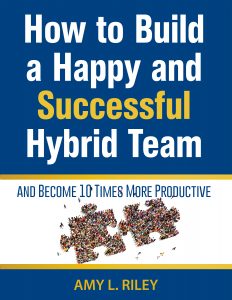
 A Summary of The Courage of a Leader® 4 Pillars
A Summary of The Courage of a Leader® 4 Pillars